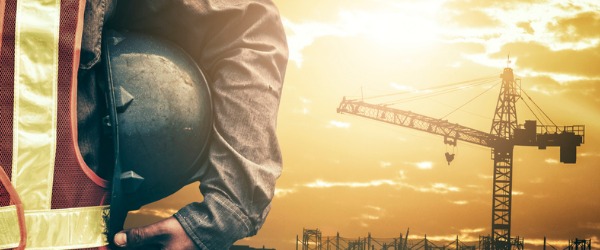What is a Derrick Operator?
A derrick operator is closely related to that of a rigger, or rig technician. The job is defined as a worker who erects, operates, and positions a derrick, and inspects, maintains, and services all the derrick components. The derrick operator works on construction sites, or on drilling rigs for the oil and gas industry. An oil derrick manages the drilling rigs, first digging an initial hole for an oil or gas well, then forcing the drill pipe deep into the earth, creating a bore hole. Pumps are then operated by the rig derrick to circulate mud and extract oil and gas. Derrick operators working in construction and shipping may be classified as crane and tower operators, using guy derricks equipped with cables and booms to move heavy materials and equipment.
The operator manages all aspects of derrick machinery. This includes guiding the pipe lengths, controlling drilling fluid, monitoring operation of the drill system, and ensuring the pumps are working correctly. They operate the electric or gas-powered components of the derrick, move the cables and pulleys and levers necessary to move products, equipment or materials onto and around the site. The derrick operator also must read and monitor console readings.
Get online training through our partner:
What does a Derrick Operator do?

The derrick operator must understand how the derrick is designed and know how to operate and maintain it. The operator must know how to position the derrick properly to ensure that drilling is done in the right location. In managing the derrick, many tasks are required of the operator. This includes positioning the pipes, guiding them into the elevators, making sure they remain steady, and keeping all elements of the derrick aligned. They must set up the pumps to remove drilling sediment, and monitor pumping circulation.
A key component of the drilling process is drilling mud, which is pumped into the bore hole. The derrick operator must know how to mix the mud and water and chemicals to create the proper mud viscosity. He or she listens to the pumps and must recognize the signs that they are operating properly and vibrating correctly. Mud reports must be prepared and chemical additives balanced. Mud flow must be monitored and logged.
The derrick operator also inspects the derrick, using climbing devices and harnesses, and must check for any flaws or potential problems. Inspections may need to be done from the derrick platform and the operator must handle sections of the drill string assembly during drilling. The operator keeps the derrick clean and the machinery properly lubricated. Often he or she serves as the crew boss, directing others in keeping the operations of the oil derrick running smoothly and safely. Good record keeping is an important part of the job, since all derrick activities must be carefully recorded.
A derrick operator should enjoy working with machinery and equipment, and should be comfortable working at heights and in potentially dangerous environments. Derrick operators have a higher than average rate of injury, so particular attention must be paid to personal care and obeying safety regulations.
Other personal characteristics important for a derrick operator include:
- good depth perception and eye-hand coordination
- good teamwork and interpersonal skills
- leadership and management abilities
- attention to detail
- physical strength and stamina
- mechanical aptitude and precision measuring
- good vision and hearing
- understanding of safety regulations
What is the workplace of a Derrick Operator like?
Derrick operators work around the world in many locations, and travel is often part of the job. The workplace can include offshore oil platforms where you are responsible for drilling deep under the ocean into the ocean floor. Many oil derricks are in remote northern locations, or places in the middle east. Work is generally outdoors and sometimes means dealing with extreme weather conditions, such as heat or cold. The noise from machinery is extremely loud and constant, and communication often is done by means of hand signals or technology. Offshore operations often require a greater level of experience than land work.
Safety is essential and the workplace safety rules must be understood and followed at all times. Work may be seasonal and involve extensive shift work, split shifts, or working around the clock. Workers often are required to live onsite for long periods of time in work camps, and work long shifts followed by extended leave periods.
Derrick Operators are also known as:
Oil and Gas Derrick Operator
Gas Derrick Operator
Oil Derrick Operator
Rotary Derrick Operator